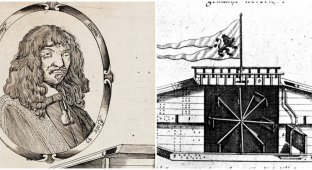Radiant, who shared it with others and gave birth to an heir: the tragic fate of the first wife of Alexander the Great (9 photos)
Alexander the Great, who conquered half the world, married three times. But only one union went down in history as an example of true passion. We are talking about his marriage to the Bactrian princess Roxana. 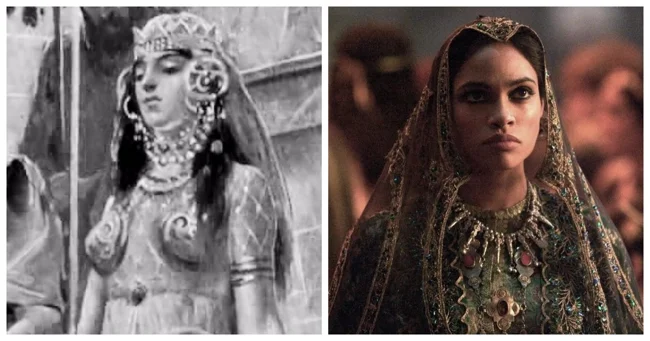
This "shining" beauty (her name comes from the ancient Iranian "roukhshna" - "bright", "radiant") went from a simple captive to the queen of the most powerful empire of the ancient world. 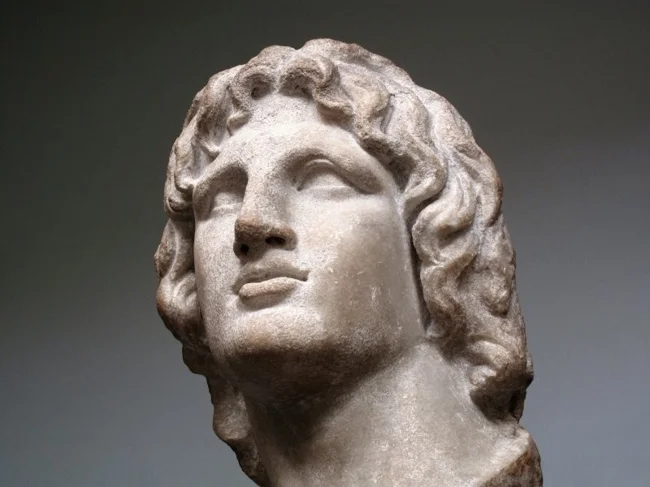
Alexander the Great
Historians argue about the details of their acquaintance and have not come to a consensus. According to the ancient Greek historian Flavius Arrian, 16-year-old Roxana was captured during the storming of the impregnable Sogdian rock - a fortress that was besieged by the troops of Alexander the Great during the Mountain War. 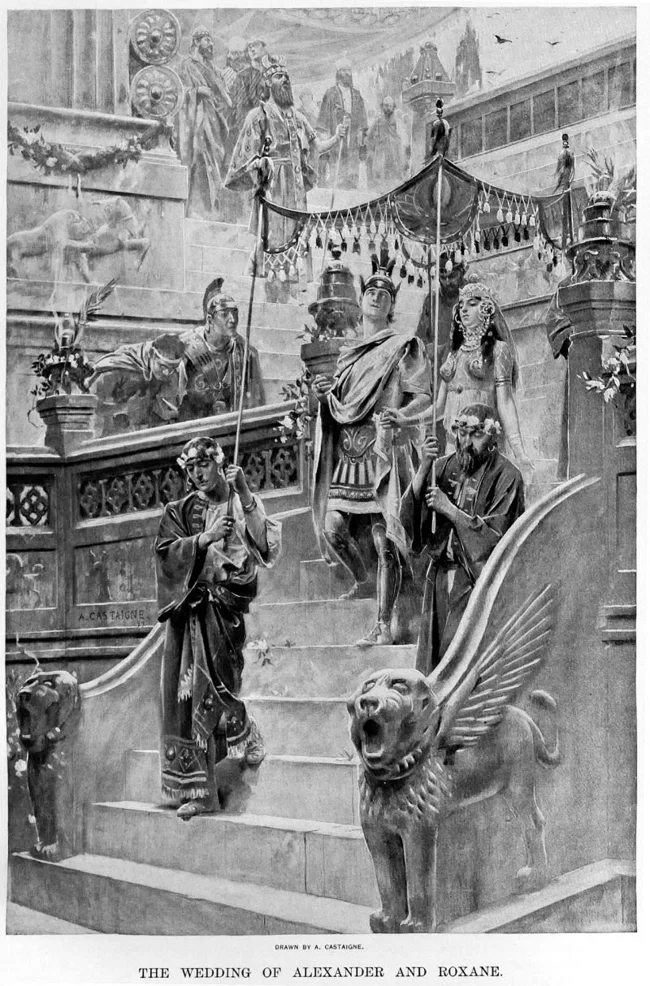
"The Wedding of Alexander and Roxana" is an engraving by André Castaing, created between 1898 and 1899
The Roman historian Curtius Rufus, the author of the "History of Alexander the Great of Macedon", claims that the meeting took place at a feast where the girl danced in front of Alexander, where she was brought along with other beauties by her father, the Bactrian nobleman Oxyartes, who served Bessus (throne name Artaxerxes V) - the last ruler of the Achaemenid Empire.
Historians are still arguing about her homeland. It could be Bactria (the territory of such modern countries as Uzbekistan, Tajikistan, Afghanistan) or Sogdiana (the area between the Amu Darya and Syr Darya rivers in ancient times). 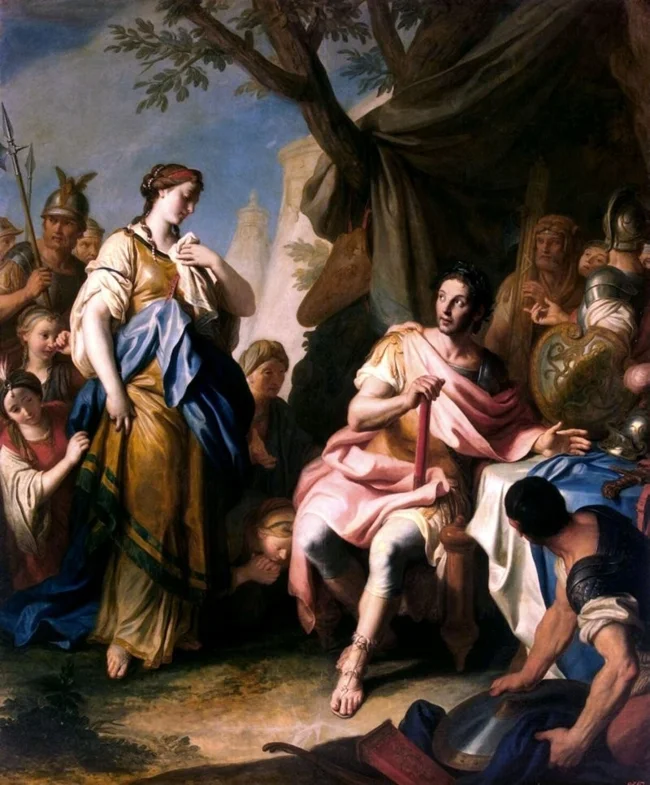
"Alexander the Great and Roxana" by Pietro Antonio Rotari (1756)
One thing is certain - the commander, accustomed to taking women by force, this time chose a legal marriage, although nothing prevented him from making the Bactrian aristocrat another ordinary concubine. Plutarch in his work "Alexander and Caesar" called Roxana "a beautiful and blooming girl", "the only woman who conquered him".
A marriage of convenience or love? 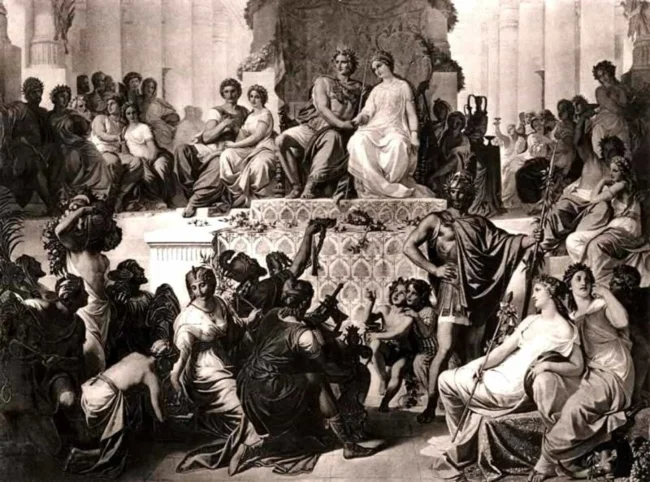
The weddings of Statira II with Alexander III of Macedon and her sister Drypetis with Hephaestion in Susa in 324 BC.
This union was a smart political move, since it strengthened ties with the local nobility of Bactria and Sogdiana. But at the same time, he also caused discontent among the Macedonian nobility, who considered Roxana a barbarian, while a Macedonian woman would have been a more suitable match for the king. But the opinion of Alexander's subjects did not bother him much, and the young beauty became the commander's first legal wife.
Roxana accompanied her husband on the Indian campaign, where she lost their firstborn. But the real blow awaited her in 324 BC, when Alexander married the princesses Stateira and Parysatis, the young daughters of the Persian kings Darius III and Artaxerxes III, with the aim of strengthening relations with the powerful Persian families.
Bloody Sunset: Revenge and Death 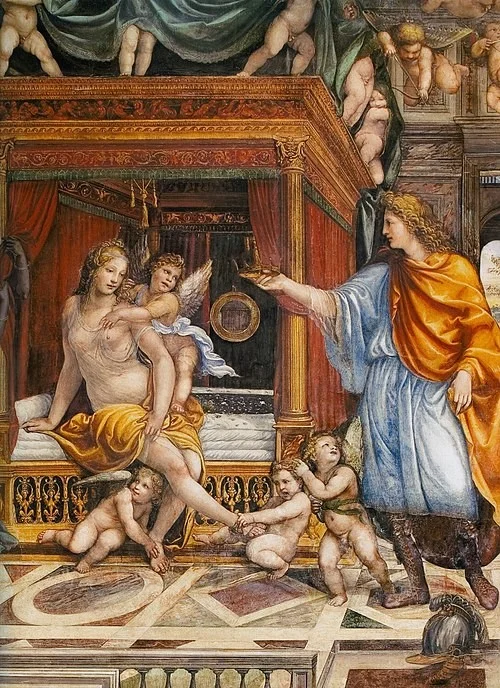
Wedding of Alexander and Roxana
Plutarch also wrote that at the time of the wedding, Roxana probably did not love Alexander. Most likely, she only felt fear of his power and gratitude for the fact that he saved her from abuse and elevated her. But then, with her actions, Roxana proved that she loved her husband and was wildly jealous of him. A month after Alexander's death in 323 BC, Roxana gave birth to an heir, Alexander IV. 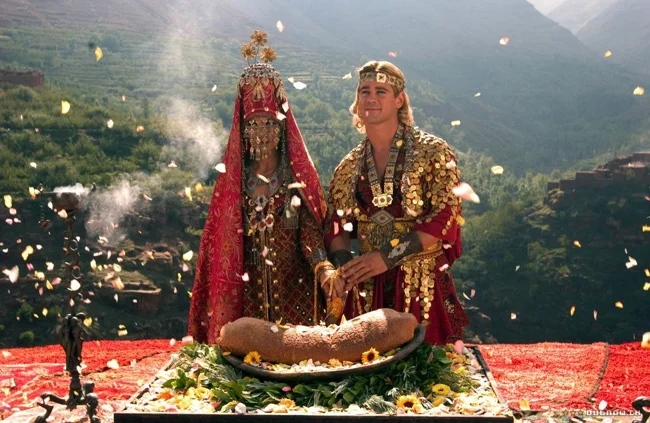
Still from the film "Alexander" (2004)
Then, realizing how precarious her position had become (Macedonsky had left no instructions regarding the succession), the woman decided to act. Having enlisted the support of Perdiccas, a friend and associate of Alexander the Great, who became regent of the empire after the death of Macedonian, she deceitfully lured Statira and her sister to her place and cruelly dealt with her rival, ordering her body to be thrown into a well and covered with earth. There is a version that it was not her sister who died with her, but Parysatis, Alexander's third wife.
After the unexpected death of Perdiccas, the woman passed from one patron to another and fought for power for several more years. 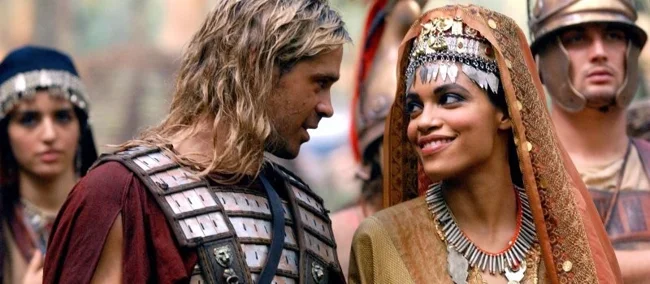
Still from the film "Alexander" (2004)
Her struggle and tragedy ended in 309 BC, when, by order of the ruler of Macedonia, Cassander, she and her teenage son, the last legitimate heir to the great empire, were secretly killed.
The image of the "radiant" Roxana continues to inspire representatives of various art movements. The Italian artist Pietro Rotari dedicated his painting "Alexander the Great and Roxana" to her. In Oliver Stone's film "Alexander", Roxana was played by Rosario Dawson. And the number of historical novels mentioning her is in the dozens. 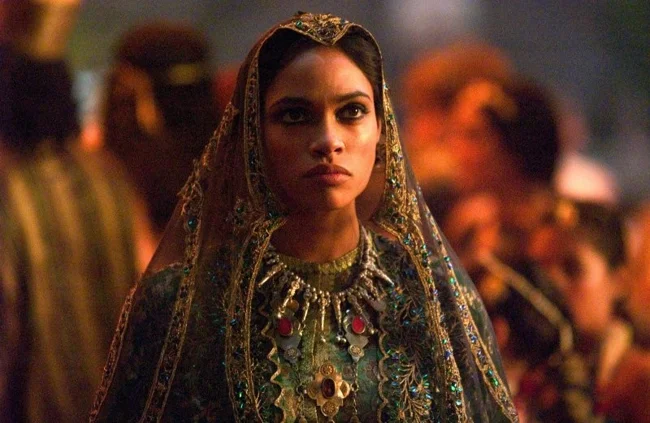
Rosario Dawson as Roxana
Roxana went down in history not just as the wife of a great commander, but as a symbol of an era where love and power always went hand in hand. And her story reminds us that even in the cruel world of conquests and political intrigues, there was room for passion - albeit with a bloody ending.
















